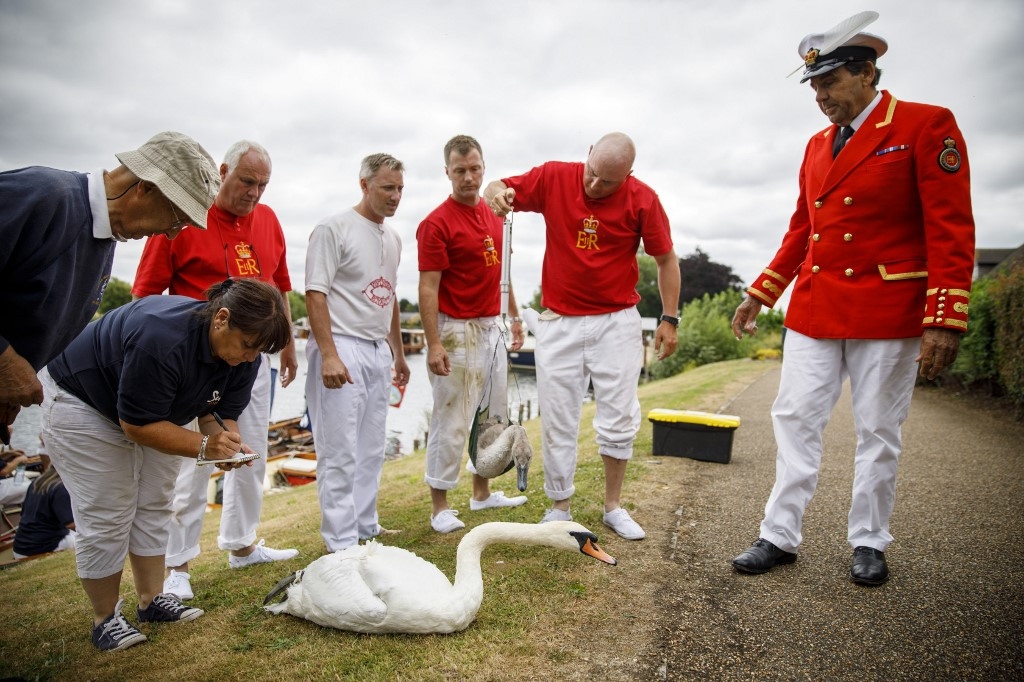Top 30 Craziet and Weirdest Laws in the World
 Top 10 Most Ridiculous and Craziest Laws in the World of All Time Top 10 Most Ridiculous and Craziest Laws in the World of All Time |
 Top 13 Craziest and Dumbest Laws in the US Today Top 13 Craziest and Dumbest Laws in the US Today |
 |
| Image: Mixi's - Edite: Knowinsiders.com |
| Contents |
When you're in charge of a large country, half of the people under your control will likely hate you. Keep in mind that the person at the top is also answerable for the legislation upon which our democratic system rests.
In addition, laws are ratified by Congress, the people (in some cases), and the president.
1. Parliaments famous Salmon Act of 1986 states that it’s illegal to hold salmon under suspicious circumstances
The Salmon Act of 1986's Section 32 declares that handling salmon in suspicious circumstances is illegal.
Anyone who receives or disposes of salmon in circumstances where they believe or could reasonably believe that the salmon has been illegally fished is guilty of an offense under this section in England and Wales. Two years in prison is the maximum punishment.
Although the context may make the law seem less strange, it is still pretty funny to be arrested for suspiciously holding salmon.
2. Australia’s second most populated state says it illegal to change a light bulb unless you are a licensed electrician
Without a valid license to do so, changing a light bulb was illegal under Victorian law. A $10 Australian fine was imposed for taking control of your light.
But the 1998 Electricity Safety Act was updated with the new version. According to a representative for Energy Safe Victoria, "While the Electricity Safety Act makes it illegal to do your own electrical work if you are not licensed, changing a light bulb and removing a plug from a socket were specifically exempted from this requirement under Order in Council G17."
3. It is against the law not to walk your dog at least three times a day in Turin, Italy
 |
| Photo: American Kennel Club |
According to a new law passed by the city council of Turin, Italy, dog owners who fail to walk their animals at least three times per day could face fines of up to 500 euros. Italy prides itself on being an animal-loving country, and stray cats are legally protected in many cities.
Turin police would rely heavily on the assistance of informants who saw cruel treatment by neighbors in order to enforce the law. The country's strictest animal protection laws are in place in Turin. Even the distribution of goldfish in bags at fairgrounds is prohibited.
 Top 15 Weirdest Animals in the World That Still Exist Today Top 15 Weirdest Animals in the World That Still Exist Today |
4. The French town of Sarpourenx makes it a legal requirement to have bought a burial plot before dying
In this French town, there were some problems with people dying senselessly and then expecting to be buried. In accordance with a directive from the mayor, no one was allowed to pass away within the boundaries of the city unless they had first paid for a plot in a nearby cemetery.
Those who continue to die will face harsh punishment. But it's not yet clear what punishment you give the dead.
5. It’s been illegal to wear a suit of armor in the UK Parliament since 1313
Edward II of England passed the 1313 Statute Forbidding Bearing of Armor under his weak-willed and disastrous leadership. By virtue of this law, it was forbidden to show up to the UK Parliament bearing arms, armor, or armed men. As a result of being intimidated and weakened by his boisterous barons and noblemen, Edward II enacted the law.
These nobles, who despised Edward and his lover Piers Gaveston, repeatedly frightened the king by showing up in front of him armed. Edward hoped that the 1313 Statute would put an end to the armed barons' looming threat because the tactic typically worked. Although it didn't, it's been in effect ever since.
6. English law used to force everyone to celebrate Guy Fawkes Night
Guy Fawkes attempted to assassinate King James I by blowing up the Houses of Parliament. As Catholics, Fawkes and his cronies opposed having James, a Protestant, as king. Therefore, the plot exemplified high treason. A law requiring people to celebrate the plot's failure was passed by Parliament in January of the year following November 5, 1605.
According to the Observance of Fifth November Act of 1605, people were required to commemorate the anniversary "with unfeigned gratitude... for all ages to come." You were a traitor as well if you didn't rejoice over James's freedom! Even though the Act was repealed by Parliament in 1859, Guy Fawkes Night is still widely observed in Britain.
7. Every wild swan in the UK has technically belonged to the crown since the 12th century
 |
| Photo: The Jakarta Post |
The English crown has owned all wild mute swans in open water since the 12th century. Over time, the monarchy started granting ownership of swans to a select group of powerful individuals in exchange for various services. To differentiate their birds from the wild swans owned by the royalty, privileged, non-royal owners marked their animals.
Today, the Queen only makes use of her legal entitlement to swans flying over specific stretches of the Thames. Swans along the River Thames are counted each year during the Swan Upping ceremony. Swans are caught, examined for markings, and then released by royal servants and authorized owners. The Royal Swan Marker conducts the ceremony.
8. Batman wouldn’t have lasted long in 17th century England
An organization of vigilantes got into legal trouble under Charles II's rule. In 1663, they attempted to burn down a brothel as apprentice boys. Due to the fact that "for men to go about to pull down brothels, with a captain and an ensign... who is safe?" they unfortunately found themselves standing trial for high treason.
The Chief Justice found them guilty. A few decades later, yet another group of anti-sin crusaders attempted to burn down a brothel and were found guilty of treason. The judge admitted that brothels were "a nuisance," but claimed that eliminating them would "take the right out of the queen's hand."
9. In 1233, it became illegal to refuse a knighthood in England
Being made a knight would seem like a great honor, but you'd be wrong. During the medieval era, becoming a knight was extremely expensive. You were required to purchase a ton of ridiculous clothing and ceremonial suits of armor, as well as generously tip the king.
And put your life in danger while fighting. When Roger of Dudley realized the cost of attending his own knighting ceremony in 1233, he declined to go. Unfortunately for Roger, the last laugh literally came at his expense. As soon as possible, Henry III banned rejecting knighthoods and seized the ungrateful swine's lands.
10. The Witchcraft Act of 1736 made it okay to be a witch, but illegal to pretend to be one
Witchcraft used to be forbidden everywhere in the world. The 1604 Witchcraft Act changed the status of witchcraft in England from an ecclesiastical to a criminal offense. But after the witchcraft craze subsided, a new era of enlightenment emerged.
The 1736 Witchcraft Act adopted a different approach as a result. The previous law, which carried a death penalty for witchcraft, was repealed. It did come with an intriguing proviso, though. Anyone who "pretended to exercise or use any kind of witchcraft" was in violation of the Act. So, while being a witch was acceptable, pretending to be one was punishable by a year in jail!
11. It used to be illegal to blow your nose on the street in Newmarket
 |
| Photo: A Growing Understanding |
The sport of horse racing began in Newmarket, Suffolk, in the United Kingdom. The activity first appeared in Newmarket in the 12th century, but James I made it more well-known by constructing a palace there in 1606. Since then, the sport has grown in popularity and become a significant industry.
The town passed laws to safeguard the horses because it was so large. In the past, it was against the law to blow your nose in public for fear that the expensive racehorses would contract your illness. Furthermore, there was a hefty fine for anyone caught "with a head cold or distemper." Both statutes have since been overturned.
12. Laws in Ancient Rome were meant to stop people wasting money on frivolous clothes and banquets
When Rome had kings, the government worked to safeguard the populace from excess and levity. They set restrictions on how much could be spent on clothing and banquets. But these laws also evolved into a tool for social control.
In addition, these restrictions—also referred to as sumptuary laws—made specific prohibitions based on a person's social standing. For instance, purple was reserved for royalty and togas for Roman citizens only. Only people with high social status could wear other clothing and jewelry. In ancient Rome, one's appearance revealed a lot about them.
13. The City of London banned long beards during Henry VIII’s reign
The City of London Alderman enacted a law prohibiting "persons with great beards" in the 16th century. The remainder of the Ordinance also forewarns people to be wary of people wearing "outrageous breeches" for an unknown reason.
During Henry VIII's reign, it's likely that the City of London encountered issues with bearded hooligans wearing garish pants. For the many hipsters passing through the Square Mile in London, the fact that it is no longer in effect is a relief. There are persistent, unfounded rumors that Henry personally enacted a tax on beards during his rule.
14. An existing Act of 1405 means any English place without stocks is a hamlet
Regarding humiliation in public, the stocks are an oddity in English history. Stocks are wooden objects used to confine people to one location and were first mentioned in 1227. Consistent complainers, liars, intoxicants, and petty thieves found themselves imprisoned in stocks where they were beaten with rotten fruit or dung by the populace.
All parishes managing their own affairs were required by medieval English law to have their own stocks. According to a 1405 Act, a village without stocks is actually just a hamlet with fewer rights. There are many very large hamlets in England because this law has never been repealed!
15. If you committed slander under Norman Law, you had to pay damages and stand in a market place holding your nose telling everyone you were a liar
King name-calling and slander were very popular during the Norman era of English history (1066–1154). The first Norman king, after all, lived his entire life under the moniker "William the Bastard" due to the fact that his parents were not wed. A person found guilty of slander was subject to a severe fine under their legal system.
They were then required to hold their noses while standing in the middle of a medieval town's market. The convict would inform all onlookers of their crime in this absurd pose. Public humiliation has long been used as a successful crime-prevention strategy.
 Top 20 Craziest Laws in the US That Still Exist Today Top 20 Craziest Laws in the US That Still Exist Today |
16. In Western Australia, it’s still illegal to possess more than 50kg of potatoes
 |
| Photo: The Whole Portion |
Western Australians who adore potatoes, take caution. It has been forbidden to possess more than 50 kg of potatoes since 1946. The potato-stricture does have a plausible origin, like many other absurd laws on this list.
Australia was healing from the effects of World War II in 1946. Many people tried to make money by selling goods on the black market for exorbitant prices because food was in short supply. The Western Australian government hoped to alleviate the supply crisis by preventing the stockpiling of potatoes, a crucial food. Today, the law protects the farmers' monopoly and makes sure that prices are favorable to them.
17. Trial by ordeal was pretty common in the medieval period and beyond
Trial by ordeal, which originated around 500 AD, was based on God assisting innocent people, much like trial by combat. To establish their innocence, the accused would have to go through a trying process.
This might involve traversing a certain distance through a blazing bonfire or spending some time holding a burning piece of metal. Famous Frankish ruler Charlemagne required both the accuser and the accused to hold up a side of a cross. Whoever lowered their side first lost. Given bread that has been blessed by a priest, your chances would be much better. You were okay as long as you didn't choke.
18. In 1336, Edward III of England passed a law to stop people getting fat
It's not just a recent phenomenon, obesity. Edward III of England passed laws in 1336 forcing his obese soldiers to lose weight because he had had enough of them. Obesity rendered people, in the words of the law, "not able to aid themselves nor their liege Lord in time of need."
More than two courses were prohibited at mealtimes by law. In order to stop people from referring to soup as a sauce or condiment, it was also defined as a separate course. In Edward's eyes, binge eating was part of a larger social problem that led to poverty and increased sinfulness. But on feast days, you could eat three courses.
19. Swiss law made it illegal for homes not to have access to nuclear bunkers in 1963
People all over the world lived in constant fear of nuclear weapons during the Cold War. People were concerned that US-Soviet relations would lead to full-scale nuclear warfare after witnessing the devastation caused to Hiroshima and Nagasaki. The majority of countries turned to producing public education pamphlets to instruct people on how to survive an attack.
The Swiss went one step further. The first regulations to guarantee that every resident had access to a nuclear shelter were passed by the Swiss government in 1963. Articles 45 and 46 of the Swiss Federal Law on Civil Protection continue to contain references to these laws. Since 1963, most structures constructed have had their own bunkers.
20. In Milan, it’s been illegal not to smile since the 19th century
Everyone in the city must smile, according to a strange and mysterious Milanese ordinance. Fines for grumpy facial expressions are permitted only when attending a funeral or visiting a hospital. It is hotly contested as to why you must smile. The law was enacted during the Austrian occupation of the city, so perhaps its purpose was to compel residents to submit to foreign rule.
However, dissidents would probably be more difficult to identify. Another theory contends that the Austrians believed Milan would attract more visitors, settlers, and traders if it appeared cheerful. However the law came to be, it is no longer used.
21. An old French law banned women from wearing trousers unless riding a bike or holding the reigns of a horse until 2013
France enacted a law prohibiting women from "dress[ing] like men" in 1800. This odd law was created to stop women from stealing men's jobs. Women could work in more interesting and well-paying jobs if they could wear trousers instead of huge, flowing gowns! In 1892 and 1900, France amended the law to reflect the times.
In situations where they are "holding a bicycle handlebar or the reins of a horse," these amendments permitted women to wear trousers. Women's modesty was preserved by these changes. Otherwise, women had to receive explicit consent in order to "dress like a man." After being rightfully disregarded for decades, France finally repealed it in 2013.
22. In 1440, the Bishop of Tréguier banned football, and threatened to excommunicate people caught playing it
Compared to contemporary soccer, football used to be a very different and much more violent sport. Prior to the 19th century, "football" involved two teams of hundreds of players engaging in physical combat over a pig's bladder. The only rule of the game stated that you had to carry the ball to a specific point in order to win.
A game would frequently be accompanied by riots, widespread destruction, and even fatalities. Numerous kings in Europe outlawed football, but none went as far as the Bishop of Trguier. He outlawed the "dangerous and scandalous" activity in his diocese in 1440. Anyone who disobeyed the bishop's rule would be excommunicated!
23. In 1939, French Lick Springs, Indiana, made it illegal for black cats not to wear bells on Friday 13th
 |
| Photo: Catster |
French Lick Springs, Indiana, adopted a law in 1939 requiring all black cats to ring their bells on Friday the thirteenth. You ask, what kind of proactive wildlife conservation will benefit the nearby birds? Oh no, this law was intended to safeguard citizens! It was "a war measure to relieve mental strain on the populace," the 1942 New York Times reported. Residents could presumably avoid having a cat cross their path and bring them bad luck if they heard the bell of a cat. The article also notes that "a number of minor mishaps occurred" in 1941 when the law wasn't enforced.
24. It’s still illegal eat a frog that dies in a frog-jumping contest in California
A popular event in Calaveras County, California, is the annual frog-jumping competition. The croaker who jumps the farthest wins the competition. Amazingly, 4,000 frogs came in just in 2007. Frog-jumping contests are serious business and are governed by a perplexing state law from 1957. If such a frog perishes or is killed, it may not be consumed or used in any other way.
In the unlikely event that their frog died during a competition, frog handlers assert that they would not eat their frogs anyway. This law has very little justification, but it's still in effect, so be careful!
25. Until 1961, the UK defined suicide as a criminal offence
Although suicide is a tragedy that shouldn't be taken lightly, outdated laws that forbid it are ridiculous. In the UK, up until 1961, attempting suicide resulted in punishment rather than assistance. For instance, Lionel Henry Churchill was sentenced to 6 months in prison in 1958 after admitting to trying to harm himself. Others were penalized severely. Successful suicides resulted in the state taking their possessions, leaving their families grieving and penniless. However, the internet rumor that attempting suicide used to be a capital offense in the UK is untrue.
26. In the 16th century, all non-noble Englishmen over the age of 6 had to wear a flat cap on a Sunday
The flat cap, which is popular among farmers and more recently hipsters, has its roots in a truly peculiar English law. All non-noble people were required to wear wool caps on Sundays and public holidays by a law passed by Parliament in 1571. Criminals were subject to a 3-farthing fine. In order to support the domestic wool industry, which was in dire straits in 1571, Parliament passed the intrusive legislation. Even in its day, this law was absurd, and in 1597, Parliament repealed it. But after 26 years, people had developed a liking for donning the wool hats. The flat cap was thus created by the law.
27. It’s been legal to marry a dead person since the 19th century in France
Do not be concerned; this is not at all unpleasant. Necromancy, or the marriage of a corpse, has been legal in France since the 19th century. This goes back to a time when giving birth outside of marriage was frowned upon. If you were pregnant and your husband died in battle before you could wed, necromancy gave your children legal parentage. Family members or an ongoing engagement vouch for the deceased's approval. Following a dam explosion that killed 423 people in 1959, the law was given its precise, modern form. A terrorist victim recently wed his partner after his death in 2017.
28. Until 1974, milking your neighbour’s cow was illegal in Texas
 |
| Photo: Dissolve |
One of the Ten Commandments is, "Thou shalt not covet thy neighbor's ox." Between 1866 and 1974, milking a neighbor's cow in Texas could get you into serious trouble as well. A $10 fine was imposed on anyone who took up, used, or milked another cow without the owner's permission. Another once-sensible law that is now absurd only in hindsight is this one. The only justification for milking your neighbor's cow is to steal the milk. Texas law still forbids illegal cow milking, albeit less explicitly, despite being repealed in 1974. You'll be accused of property theft today.
29. Leading a cow while drunk has been illegal in the UK since 1872
With the Licensing Act 1872, Britain's problem with drunken misdemeanors was hoped to be solved. It was prohibited in one section to be "drunk while in charge of any carriage, horse, [or] cattle on any highway or other public place." It makes little sense now, but it made a lot of sense back then. Cattle drovers traveled great distances to transport massive, potentially dangerous herds of cows to markets. Someone trying to lead their cows through a town while intoxicated was the last thing anyone needed. Even though cows now frequently travel great distances by truck, driving while intoxicated is still prohibited.
30. All beached whales in the UK have belonged to the king or queen since 1324
Another odd story from our friend Edward II is presented here. He enacted a law in 1324 designating as "royal fish" any whale, sturgeon, dolphin, or porpoise caught within 5 kilometers of the shore. This one was motivated only by greed.
The wealthy coveted the "royal fish" for their banquets because they fetched a high price on medieval markets. There was also a sizable market for whale oil. Simply put, Edward didn't want to give them to his people. The law is still in effect today despite never having been repealed. A 10-foot sturgeon was caught in 2004 by a fisherman near Wales, and he had to request Queen Elizabeth's approval before selling it.
Inconclusion
Due to the fact that this is our own personal top list, the laws that we consider to be the most ridiculous can be found at the end of the article. Unsolved is the question of how it is possible that such ridiculous laws can still be on the books in modern times. If you are aware of some strange laws that are still in effect in your nation or state, feel free to tell us about them in the comments section below.
If you found this article interesting, please remember to give it a like and share it with your loved ones and friends. We are grateful that you have joined us here at KnowInsiders.
 Top 13 Most Weirdest Laws in America Today Top 13 Most Weirdest Laws in America Today Only in American: The United States is a large, vibrant, and diverse country in which states and even cities have the power to pass their ... |
 Top 5 The Freakiest Zodiac Signs In Bed According To Astrology Top 5 The Freakiest Zodiac Signs In Bed According To Astrology Ready to discover which zodiac sign is the freakiest in bed? Well, you’re about to find out with our top 5. |
 Top 10 Most Wanted Fugitives By FBI In The US Top 10 Most Wanted Fugitives By FBI In The US There are very dangerous people out there that can cause harm to the society, and here is the top 10 most wanted fugitives by the ... |


























